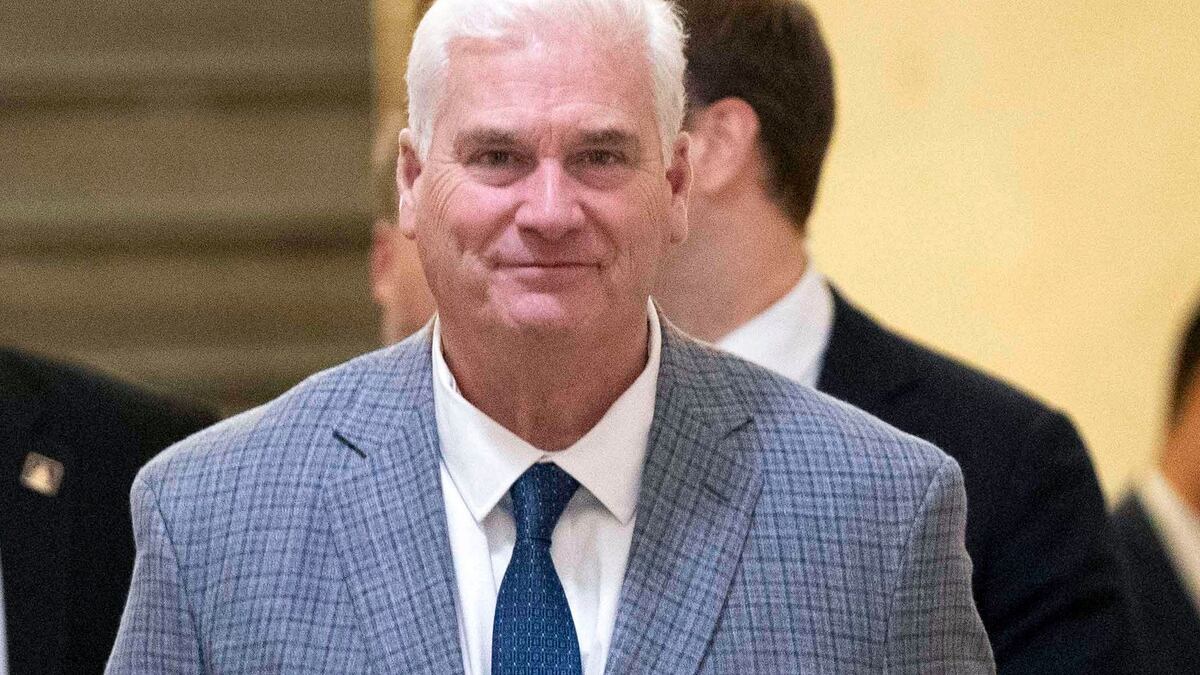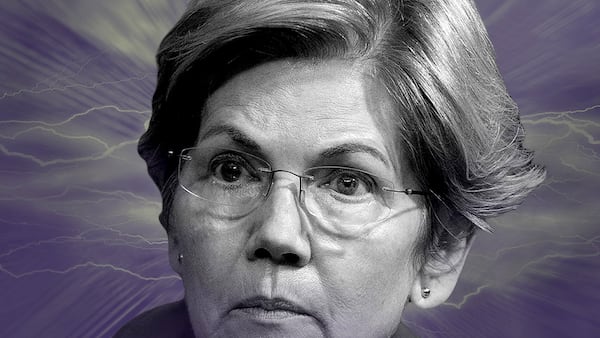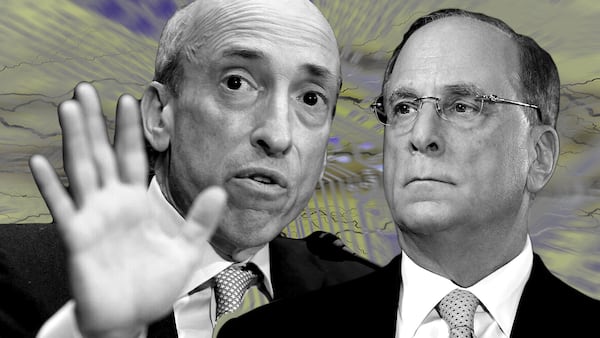- In 2022, the SEC issued accounting guidance that critics say has deterred global banks from offering crypto custody services.
- Lawmakers say that's risky now that Bitcoin spot exchange-traded funds have been approved.
- A bipartisan majority voted to scrap the SEC guidelines this week.
When the Securities and Exchange Commission approved spot Bitcoin exchange-traded funds in January, there were only four firms safeguarding the underlying assets — Coinbase, Gemini, BitGo, and Fidelity.
That’s a problem for Republican lawmaker Tom Emmer.
“Not a single bank provides the custodial services for any of the 11 approved ETFs. This is risky,” Emmer told Congress this week.
His comment signals that US lawmakers will help Wall Street further dominate the more than $8 billion ETF trading frenzy gripping crypto markets. Emmer was among a majority in the House Financial Services Committee who this week voted “aye” on a resolution to scrap guidance dubbed SAB 121.
Staff Accounting Bulletin 121, or SAB 121, is a controversial piece of SEC guidance that critics say has deterred big banks from holding digital assets at scale on behalf of clients.
Custody is a booming market, fuelled by the new Bitcoin ETFs that have lured billions of new crypto investors. So-called custodian banks hold assets on behalf of investors in ETFs, and manage the flow of money in and out of the fund.
While global custodians like BNY Mellon and State Street have tried to get a jump on this market, they’ve had to roll back their services.
‘Not a single bank provides the custodial services for any of the 11 approved ETFs. This is risky.’
That’s thanks to SAB 121.
The vote to axe the guidance is a big step forward for the bipartisan effort, which now moves to consideration by the full House of Representatives.
Nullifying the SEC guideline throws open the door to giants with strong custody businesses — such as JPMorgan, Goldman Sachs, BNY Mellon, and State Street — to enter at scale the digital asset custody market that crypto natives currently rule.
Emmer told the committee that the SAB 121 guidelines weaken investor protection just as Bitcoin ETFs are raking in inflows.
And crypto users “are forced to rely on less regulated and less well-capitalised institutions for custody instead of using an established bank.”
What is SAB 121?
SEC staff sometimes issue guidelines on accounting standards and disclosures. SAB 121 is one of those updates, issued in 2022.
SAB 121 says public companies that safeguard digital assets for clients should account for them as liabilities on their balance sheets.
That’s a good idea for consumer protection, in theory at least. Had FTX been forced to account for digital assets in this way, that may have prevented it from commingling funds with its hedge fund, Alameda Research — a practice that led to the collapse of the exchange.
But the problem for large banks is that they aren’t just regulated by the SEC. They also have their own regulators, the Federal Reserve and the Federal Deposit Insurance Commission
These so-called “prudential regulators” force banks to hold certain ratios of capital and liquid assets against risky items on their balance sheets.
Banks don’t like doing this — assets held in reserve can’t be lent out or otherwise put to revenue-generating use.
So accounting for digital assets in this way is hugely expensive for a bank.
BNY Mellon, for example, has said it would have to put $466 billion on its balance sheet — more than doubling it — if it custodied digital assets.
Uncertain of how the SEC would enforce the guidelines, financial firms have kept their custody businesses small, or even scuppered them:
- BNY Mellon appears to have realised that a service it launched might run afoul of SAB 121.
- In March, State Street ended its deal with UK-based Copper to provide digital custody, citing the “uncertain regulatory environment” in the US.
- In July, exchange operator Nasdaq halted plans for its own service.
BNY, State Street, and Nasdaq did not respond to requests for comment from DL News.
Violating procedure
SAB 121′s critics also say the SEC issued it in a way that violates procedures.
“The SEC issued SAB 121 without conferring with the prudential regulators who are the experts at regulating bank custody. That’s a pretty significant oversight,” Flood told the committee on Thursday.
In October, the US congressional watchdog agreed.
The Government Accountability Office said in a non-binding decision that SAB 121 is not merely guidance, but amounts to a rule, and should therefore have been submitted to Congress.
Still, the SEC has argued that SAB 121 is not an agency rule, as it was not a statement representing the full commission.
Critical guidance
While the “ayes” won the day on Thursday, there were some lawmakers who said that SAB 121 is a critical tool in consumer protection.
The committee’s top Democrat, Maxine Waters, said that the SEC guidance was “offered to protect investors against the mishandling of customer crypto assets by custodians, a practice that was at the core of FTX’s spectacular collapse when billions of assets went missing.”
She added that because the resolution seeks to block the SEC from issuing similar guidance, it would have a chilling effect on the regulator’s ability to clarify financial and legal issues.
“This resolution would cause serious harm to our markets,” Waters said.
Want to talk about crypto policy, custody or ETFs? Contact the authors at joanna@dlnews.com or adam@dlnews.com







